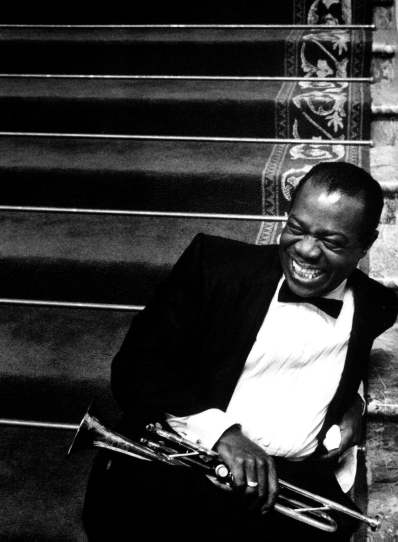The terrific star of Chicago Shakespeare’s new Richard III, Wallace Acton, took a little getting used to in the role for me. He plays it with a pinched, mannered quality that goes against the tide of recent performances I’ve seen in which our hunchbacked schemer boasts a measure of treacherous sex appeal, gimping around with a certain swagger. Not this Richard (though his movement is remarkable, especially a tortured, twisting jump onto a table). Acton and director Barbara Gaines play Richard’s repellency straight and pure–it’s mitigated only by his silver tongue, and the effect is to magnify the power and charms of that language and rhetoric.
Their commitment to an unappealing Richard has dramatic payoffs too. When Anne is seduced and Elizabeth coerced by him–the “true love’s kiss” he commands her to bear to her daughter in Act 4, Scene 4 is forced on Elizabeth, at length–visceral shudders at the violation ripple through the audience. When Richard appears publicly as king, a couple of bludgeon-wielding heavies silently daring the townspeople not to acclaim him, some of the playgoers comply with halting applause.
In the playbill, Gaines says it struck her, rereading the play, “how every major character has a feeling, an intuition, that they then repress.” When the repressed returns, she and the scenic and special effects designers spare little in rolling out the red carpet for it. They have surprises in store that I won’t ruin here, but that make the final battle as riveting as possible, with an unexpected layer of complexity. I don’t know enough about the history of the play’s production to say whether the ghosts of Richard’s victims have ever made such an affecting and harrowing return, or whether they’ve played such a decisive role in how the last act unfolds. But they’re unforgettable in this production, a terror and a true moral center.
Richard III runs through November 22. The cast is great and the staging is sharp, juxtaposing period costumes with the occasional appearance of selected modern objects: a steel gurney, a plastic bag, all the most menacing props. There are small details to savor for their emotional resonance, for instance the widowed Queen Margaret’s entrance in a gown that’s a rotting version of the same one Queen Elizabeth is wearing.
If you’re in Chicago or can get here, don’t miss it.
Archives for October 26, 2009
TT: See (and hear) it now
You can now see four video clips from The Letter by going here. Do so.
TT: Unique selling point
 What makes Pops: A Life of Louis Armstrong different from all previous Armstrong biographies? When talking about Pops with interviewers, I usually stress that I’m the first biographer to have had access to the 650 reel-to-reel tapes that Armstrong made during the last quarter-century of his life, many of which contain astonishingly candid recordings of his private after-hours conversations. I also try to work in the fact that I’m the first trained musician ever to have written a fully sourced biography of Armstrong.
What makes Pops: A Life of Louis Armstrong different from all previous Armstrong biographies? When talking about Pops with interviewers, I usually stress that I’m the first biographer to have had access to the 650 reel-to-reel tapes that Armstrong made during the last quarter-century of his life, many of which contain astonishingly candid recordings of his private after-hours conversations. I also try to work in the fact that I’m the first trained musician ever to have written a fully sourced biography of Armstrong.
In addition to these two things, though, there’s another important point that I sometimes forget to make. I’ve written about it in this space, but I think it’s worth repeating, both here and in the future.
To put it as simply as possible, I’ve sought to write a narrative biography of Louis Armstrong that is comparable in seriousness, scope, and literary quality to a “definitive” high-culture biography of a great novelist–or a great classical composer. Very few popular-music biographies have aspired to that kind of standard, but it seems obvious to me that Satchmo was a figure of comparable artistic and cultural significance, and deserves to be written about in the same way.
If anybody asks you why they should go out and buy a copy of Pops, that’s what you should tell them.
TT: Consumables
• What I’m reading: Robin Kelley’s new biography of Thelonious Monk
 • What I’m listening to: Duke Ellington joue Billy Strayhorn, a two-CD anthology released in France in 2005
• What I’m listening to: Duke Ellington joue Billy Strayhorn, a two-CD anthology released in France in 2005
• What I’m seeing: Yvonne Jacquette: The Complete Woodcuts 1987-2009, up through November 28 at Mary Ryan Gallery
• This week’s shows: David Cromer’s production of Neil Simon’s Brighton Beach Memoirs, the new Broadway revival of Finian’s Rainbow, Lynn Redgrave’s Nightingale, Theresa Rebeck’s The Understudy, and Goodspeed Musicals’ revival of A Funny Thing Happened on the Way to the Forum
TT: Almanac
“Seldom if ever again in life will you be afforded the chance to scrutinize such an array of losers in an environment that actually encourages their most pretentious inclinations!”
Daniel Clowes, “Art School Confidential”
